
The role of Mobile Wallet Cards in the...
Mobile wallet cards have become a key tool to improve the quality of life of the customers....
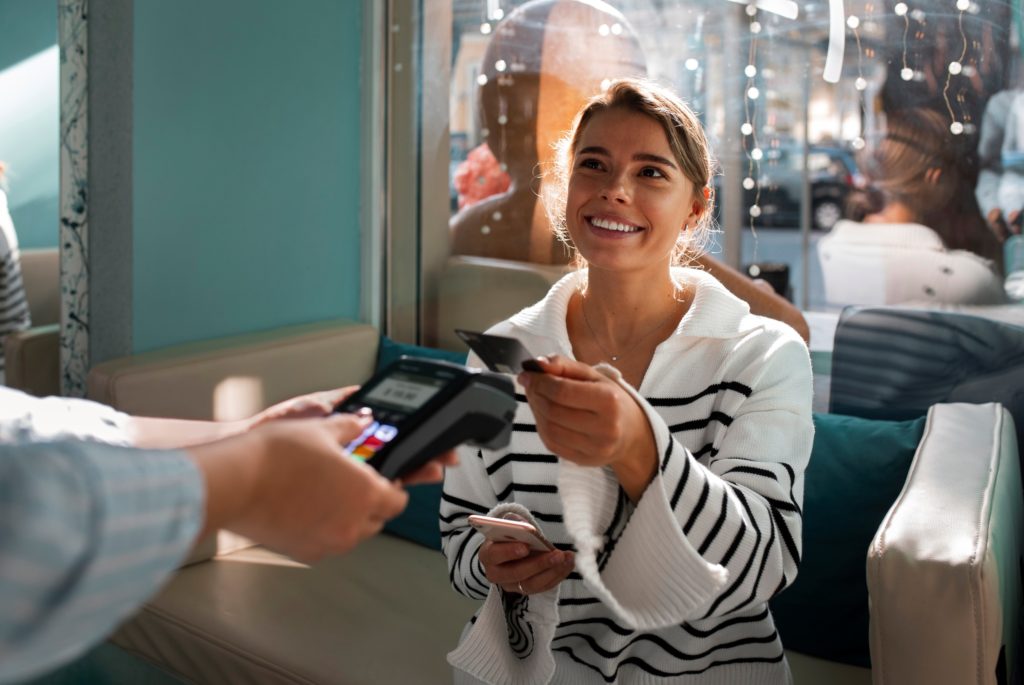
On March 19, 2025, the IESE Business School became the epicenter of a key conversation about the future of customer loyalty with the event "The Future of Customer Loyalty".Smart Loyalty: from today's customer to the 2030 consumer". A meeting point for NATEEVO experts and NATEEVO academics, who brought together retail leaders from its Alumni program to explore the trends that will shape consumer behavior in the coming years.
Pedro LatasaNATEEVO CEO and IESE alumnus, kicked off the day by underscoring the importance of discussing these issues in a world where technology is advancing by leaps and bounds and redefining the relationship between brands and customers. "To talk about loyalty today is to talk about the evolution of the consumer and how technology is leading the way." he emphasized in his speech.
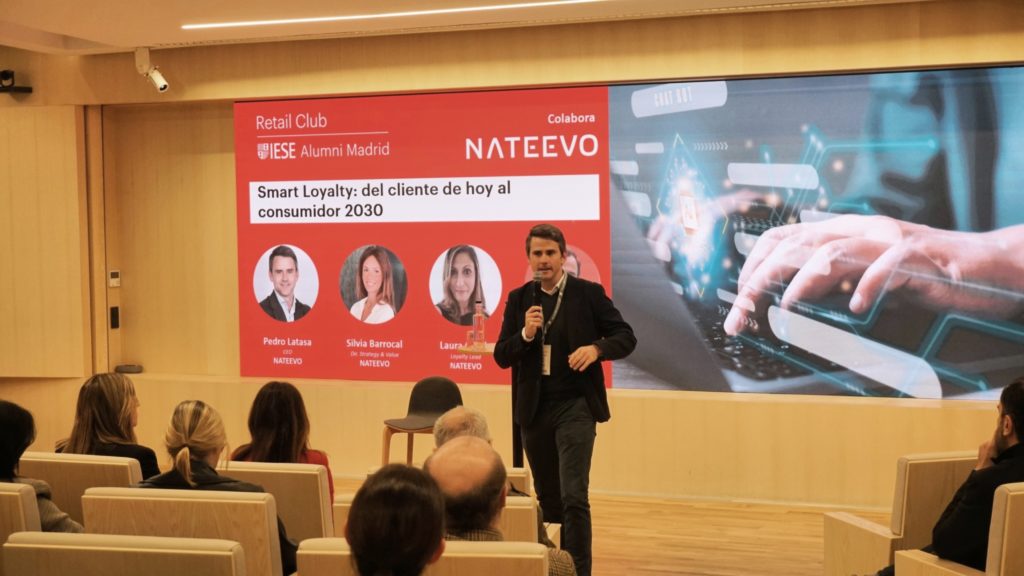
Silvia BarrocalDirector of Strategy & Value at NATEEVO, guided the audience on a journey into the future, presenting four key customer profiles that will define consumption in 2030:
–Conventionalists: seek authenticity and analog experiences in an increasingly digital world.
–The "energizers": attracted by humor and playfulness, they expect innovative and fun experiences.
–The new independents: value transparency and demand accountability from brands.
–The guardians of privacy: prioritize the protection of their data and their digital well-being.
Barrocal also discussed the main challenges in loyalty strategies: the saturation of loyalty programs, the difficulty of differentiating in a crowded market and the growing importance of personal data privacy. In this context, he highlighted the key role of artificial intelligence in the hyperpersonalization and omnichannel to build more relevant experiences.
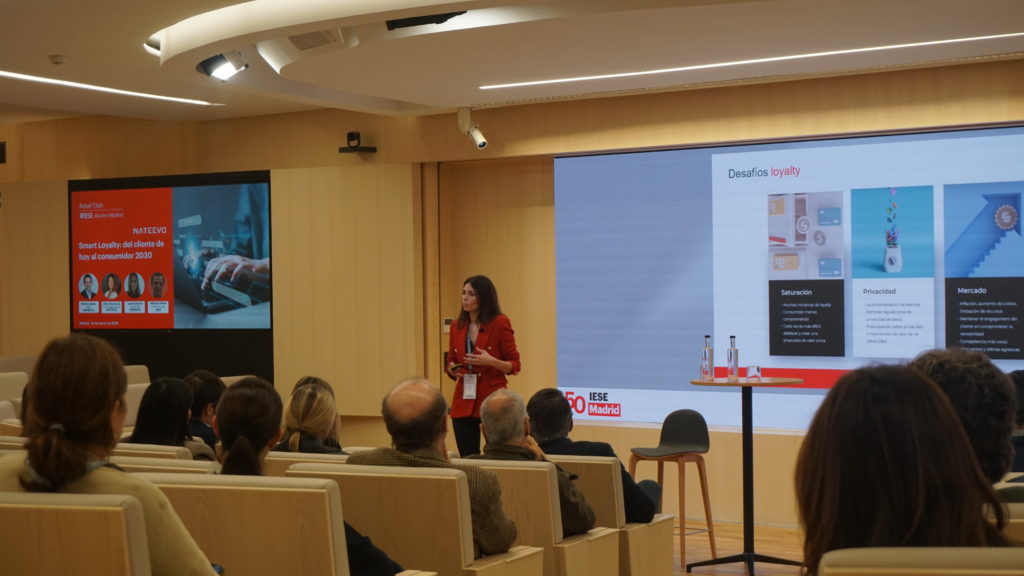
Laura GarciaNATEEVO's Loyalty Lead, presented the findings from a study conducted in 2024 among more than 300 consumers in Spain and Latin America, which showed that, although savings remain the main driver of loyalty program adherence (73%), personalization is a major unresolved issue. In fact, 90% of respondents expressed a desire to receive content tailored to their interests and only 7% said they felt that brands really knew them.
Despite the popularity of points programs, the study revealed that they need to evolve to align with modern consumer expectations. In addition, a troubling 60% of participants stated that, despite being enrolled in loyalty programs, their level of engagement with the brand has not increased, highlighting the need for more effective and differentiating strategies.
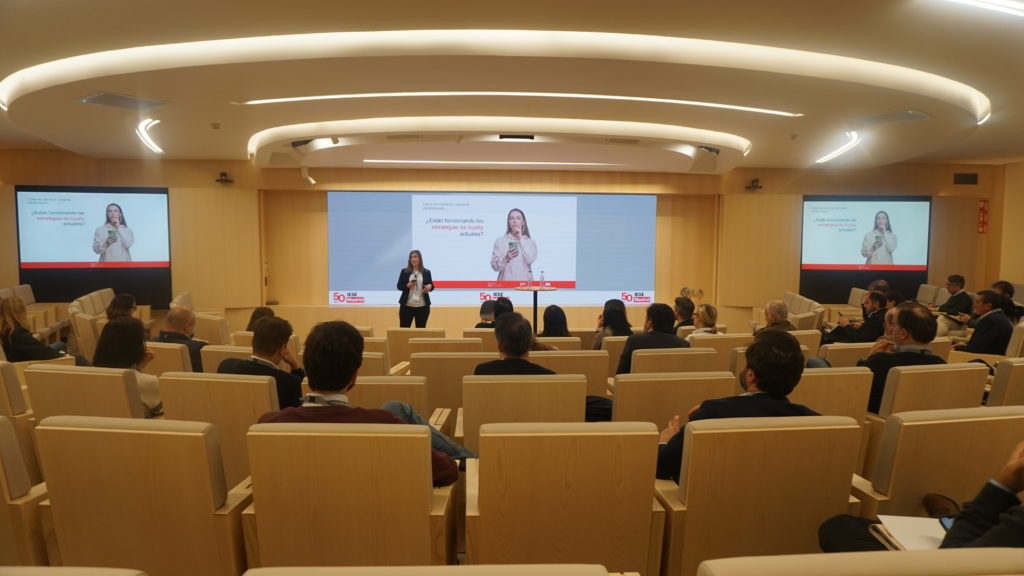
One of the most illustrative moments of the day was the comparison of loyalty with the experience of shopping at a neighborhood greengrocer's, where the clerk remembers each customer's favorite products and notifies them when new stock arrives. "Technology makes it possible to replicate this experience on a large scale."said Alfonso Urien IESE Intent HQ Chair, highlighting the crucial role of artificial intelligence and geolocation in impacting the user at the ideal time and place.
Omnichannel was another of the event's main protagonists. Specialists agreed that today's consumer expects seamless and consistent interactions across all channels, from Click & Collect to smart fitting rooms, omnichannel returns and contactless payments. In this sense, hyper-personalization is emerging as a key differentiator, enabling brands to anticipate customer needs and deliver more meaningful experiences.
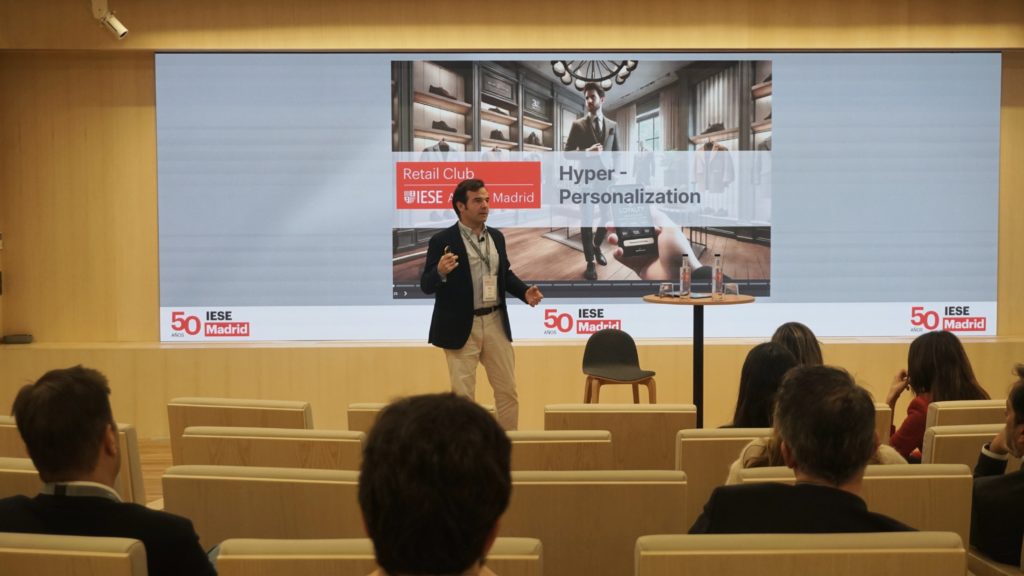
The event closed with a series of strategic recommendations to face the challenges of loyalty in the next decade:
-Knowing the customer better through their data to offer personalized and differential experiences.
-Use technology with a humanized approach.
-Optimize communication to maximize impact.
-Promote the mobile channel through technologies such as the Smart Wallets cards and push notifications.
The day in IESE Business School not only left valuable learnings, but also posed a clear challenge for brands: to build genuine and sustainable connections with consumers, leveraging technology and data in an ethical and effective way. The loyalty of the future will not be based on simple rewards, but on relevant experiences that build trust and lasting engagement.

The role of Mobile Wallet Cards in the...
Mobile wallet cards have become a key tool to improve the quality of life of the customers....
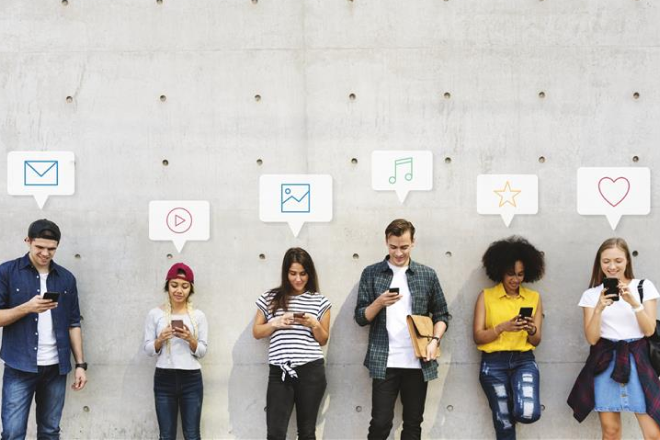
The art of listening in the digital era
Digital Listening: the analysis strategy that allows us to understand the conversations that revolve around a specific...

AI Generative: The fascinating world of...
In this article, we will explore the main aspects of Generative AI and discover how this technology...